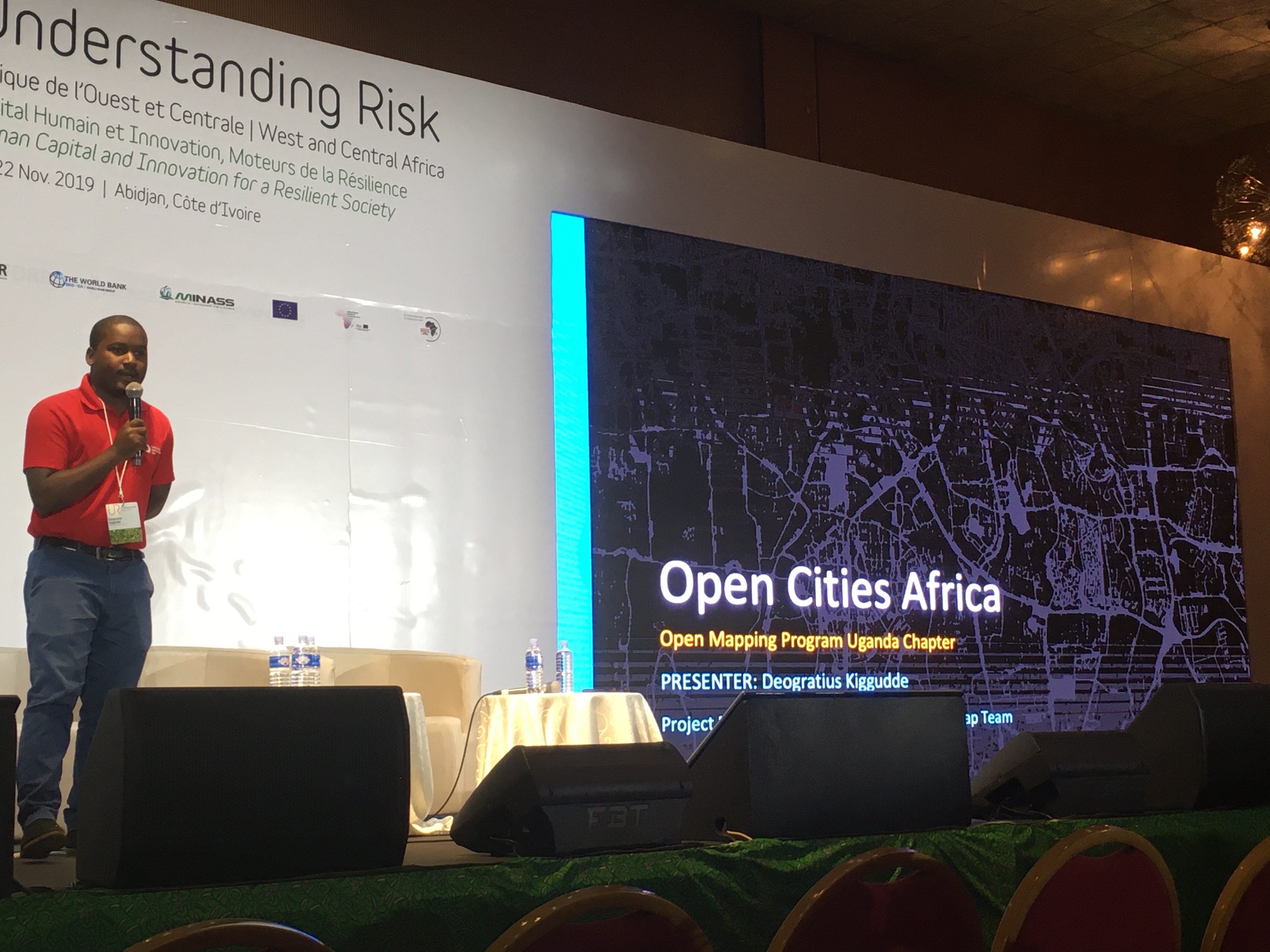News — 05 October, 2020
HOT Pairs 2020 Virtual Summit with the Understanding Risk Forum 2020

HOT pairs 2020 Virtual Summit with the Understanding Risk Forum 2020
The HOT Virtual Summit 2020 (4 Dec.) will immediately follow the Understanding Risk Forum (1-3 Dec.). Here’s why we find UR to be such a good match.
Immaculata Mwanja, Operations Manager (OMDTZ)
I participated in the 2019 Understanding Risk Tanzania conference, which had the theme “Zero Waste”. The conference focused on climate smart infrastructure, innovation, and education, and showed examples of changes that can be made at the community, business, and government levels to transform our resource lifecycles for improved resilience.
The OpenMap Development Tanzania (HOT Tanzania) team was fortunate to participate in the conference and share about the work that we have been doing in Tanzania. We demonstrated how our work has not only impacted the residents of Dar es Salaam, Tanzania, but could also be duplicated in other cities.
Ramani Huria is a community-based mapping project that began in Dar es Salaam and trained university students and community members how to precisely map the most flood-prone areas of the city. It is an example that can be duplicated to tackle climate impacts and flooding in other cities.
HOT is using similar development tools to help other affected areas become less vulnerable, while Understanding Risk is supporting these efforts by improving Tanzania’s ability to prepare for, respond to, and recover from climate-related shocks. This alignment, the HOT Summit pairing with Understanding Risk, is what I would call a perfect fit and is one of the best ways I can see to pursue climate resilience.
Geoffrey Kateregga, Community Manager
Understanding Risk is a community of risk management and prevention - including risk assessment, and communication - experts and stakeholders from around the world. Its members work in government agencies, multilateral organizations, the private sector, non-governmental organizations, research institutes, academia, local community organizations, and civil society.
Attending the regional 2019 Understanding Risk West and Central Africa Conference, which coincided with the State of the Map Africa Conference in Abidjan, Ivory Coast, allowed me to witness collaboration across these many sectors to face the crucial challenge of understanding the risks of natural disasters. As HOT, we should map communities before disasters strike, enabling them to prepare for and mitigate risks, rather than only mapping after a crisis has occurred.
Pairing with Understanding Risk for this year’s HOT Summit is very timely, as it is an opportunity to share knowledge and experiences, discuss good practices, and collaborate on innovations in the field of risk prevention with the Understanding Risk Community. At the same time, collaborating with HOT will give Understanding Risk participants a unique opportunity to immerse themselves in the latest open and participatory mapping technologies and the OpenStreetMap community.
Jess Beutler, Programs Manager
Pairing HOT’s Summit with Understanding Risk gives us the opportunity to open our discussions on humanitarian mapping’s past, present and future to an incredible range of disaster response and resiliency stakeholders, and data users during a time of unprecedented global crises.
Attending Understanding Risk Caribbean in 2019, I saw the potential for collaboration and outreach for HOT when engaging with the UR community. This is especially true for regions where HOT does not have active field projects. Government representatives ranging from the Prime Minister of Barbados to local disaster response team members were present alongside representatives from the private sector, multi-laterals, and local and international NGOs alike. Those present were focused on how to collaboratively improve disaster response and resilience across the region - showcasing many of the same principles that the HOT community knows and strives for.
During the conference, I was able to share our mission and develop relationships with people who were unfamiliar with our work but were eager to collaborate - relationships that have shaped how HOT is currently supporting the region. While HOT’s work and mission was new to some, our work in the region - from the OpenStreetMap community’s innovative response in Haiti in 2010 to the many responses we’ve led in the Caribbean during the Atlantic Hurricane seasons - was very familiar many who were eager to share the impact our community has had. It was invaluable to be able to not only hear about our impact from these stakeholders, but to also explore how we can better support and collaborate in the future.
Russell Deffner, Response Coordinator
Pairing the HOT Summit with the Understanding Risk conference makes perfect sense. I was fortunate enough to attend the UR Boulder conference in 2015, where many of the organizations we partner with for disaster response were there to talk about preventing and minimizing disasters before they strike. The conference had many of the same sponsors that you might see at the HOT Summit: from ESRI and DigitalGlobe (now MAXAR) to key partners such as MapBox and Ushahidi, who also presented and facilitated some of the sessions.
Happening only a few years after a major flood caused massive damage to a wealthy city that thought it was well prepared, Understanding Risk brought tough questions and thoughtful insight to how ill-prepared much of our world really is to disaster. Split between the beautiful University of Colorado campus (which later hosted the State of the Map - US conference in 2017) and the National Center for Atmospheric Research, the Understanding Risk conference could not have been a more diplomatic event for a place that has everything it needs to deal with disaster, as well as plenty of disaster risk, that maybe just needed a new perspective. As HOT begins further developing its own capacity to assist with preparedness and mitigation of risk, I can think of no better partnership for what is sure to be a monumental event.

